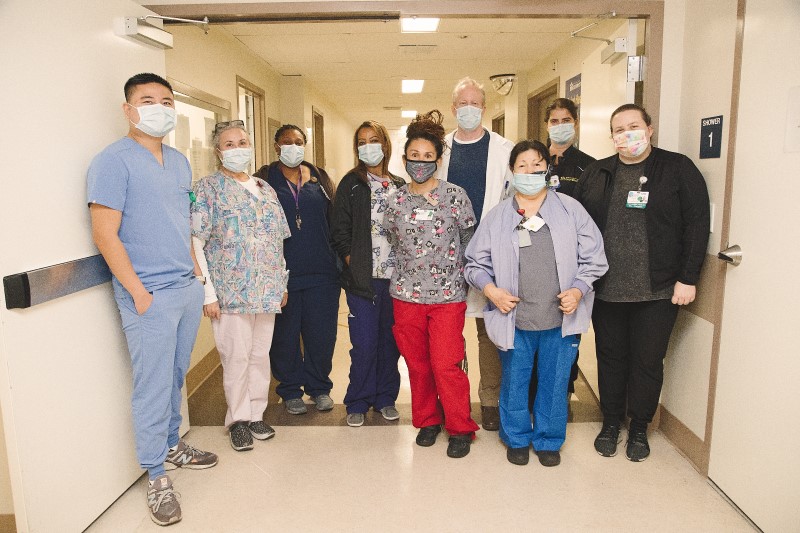Southern California Hospital at Culver City Offers Unique Behavioral Health COVID Unit

Southern California Hospital at Culver City may be the only hospital to offer a designated behavioral health unit for COVID-19-positive patients in Los Angeles, according to Lawrence Story, vice president of behavioral health services.
“When COVID-19 first emerged, we quickly realized that it could have a major impact on our patient population,” said Barbara Neefs, director of behavioral health services.
The majority of the clients on the behavioral health unit suffers from chronic mental illness in addition to being homeless with limited resources regarding basic hygiene Since the staff still wanted to provide services to those individuals who tested positive for COVID-19 and were in need of acute psychiatric interventions, part of the unit was designated an 11-bed psychiatric COVID unit.
The idea was implemented quickly. “In April, it took us about two weeks to get the unit and our staff ready and, since then, our unit has always been occupied with COVID-positive clients,” Neefs said.
The COVID unit has a separate nursing station and all the staff wears PPE. Patients are encouraged to stay in their room and provided with individual therapy materials instead of attending group therapy; the recreational therapists also offer individual therapy sessions. Since there are no TVs or radios in the room, individual DVD players and tablets are available for use upon patient's request.
On this unit, the psychiatrists and physicians consult with the patients using telepsych. The nursing staff closely monitors the patients for any symptoms that might indicate a need for more intensive medical intervention.
“There are additional challenges on this unit,” Neefs pointed out. “Being isolated in a separate wing often provokes a lot of anxiety and agitation in our patients, who mostly suffer from paranoid schizophrenia and schizo-affective disorder. Our patient population is oftentimes also very preoccupied, which makes compliance with mask wearing and social distancing difficult.
“In addition to that, our staff wears PPE, which can hamper communication and can intimidate the patients from approaching us.”
To keep the patients occupied, the behavioral health staff are coming up with new ways to improve the limited programs and resources available.
“We have noticed that the more patients are engaged throughout their stay—either through short interventions by staff, any form of distraction through media, or any other types of entertainment, such as puzzle searches and coloring, provided by our staff—the less need we see for psychiatric emergency interventions.”
